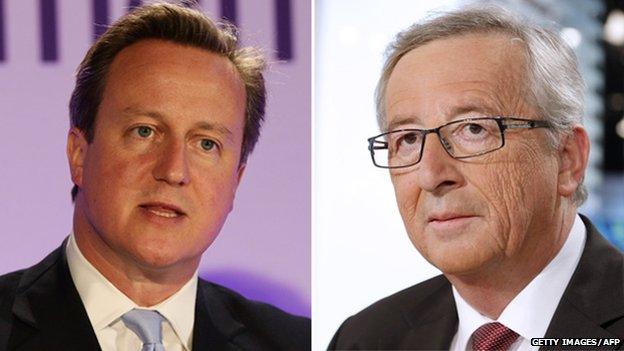EU leaders gather for WWI memorial ahead of Juncker battle
- Published
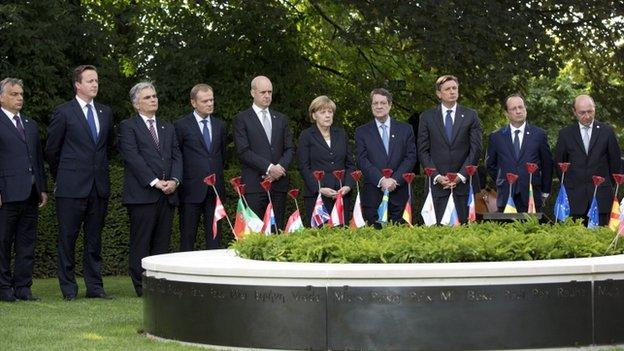
EU leaders have held a ceremony in Ypres, Belgium, on the 100th anniversary of the start of World War One, ahead of an EU summit.
The summit is overshadowed by a dispute over who should lead the European Commission.
EU leaders are expected to make a decision on the Commission presidency on Friday.
In Ypres, the 28 EU leaders joined in a minute of silence remembering the fallen of WW1 at the Menin Gate.
Ypres is close to Western Front battlefields where hundreds of thousands lost their lives, and the gate bears some 54,000 names of the missing.
In a moving ceremony, the leaders dedicated a memorial bench stamped with the word "peace" in the EU's 24 official languages.
European Council President Herman van Rompuy read the poem The Fallen which was first published in 1914.
Done deal?
UK Prime Minister David Cameron's bid to block Jean-Claude Juncker becoming Commission president looks set to fail after his allies recently changed tack.
German Chancellor Angela Merkel had given the British prime minister hope after agreeing to a vote on the issue if there was no consensus.
But both the Netherlands and Sweden now say they will back Luxembourg's ex-PM.
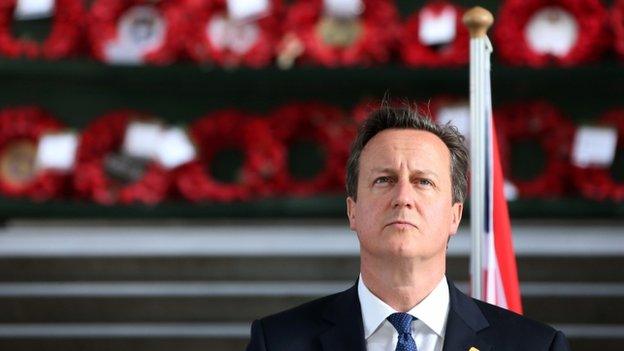
British Prime Minister David Cameron: "The peace we have today is something we should cherish every day"
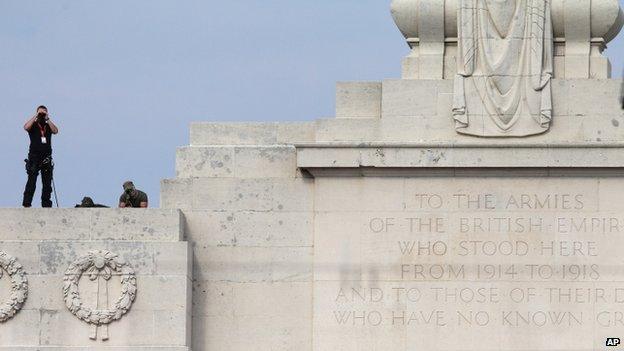
Wreaths were laid at the Menin Gate as poppy petals floated down from above

Analysis: Cameron's allies against Juncker fall away by Gavin Hewitt, BBC Europe editor
There is, of course, an element of domestic politics at play with Mr Cameron's strategy. Facing down the lacklustre Mr Juncker seems to be playing well with British voters.
But Mr Cameron is also fighting for a principle that nominating Mr Juncker would be an "irreversible step which would hand power from the European Council [heads of state and government] to the European Parliament".
Why does that matter? Because the prime minister in his bid to sell a reformed Europe to the British public needs the reverse to happen: a shift in power back to national parliaments. This fight over the former prime minister of Luxembourg is part of the longer struggle to reform the EU.

Mr Cameron says Mr Juncker's nomination ignores the "pro-reform message" sent by European voters last month.
The Commission president runs the EU's executive, which drafts EU laws, enforces EU treaties - imposing fines on member states if necessary - and negotiates major trade deals. The Commission also acts as a powerful watchdog over national budgets.
When asked by the BBC on Thursday if he thought his appointment was a done deal, Mr Juncker smiled and replied: "I think."
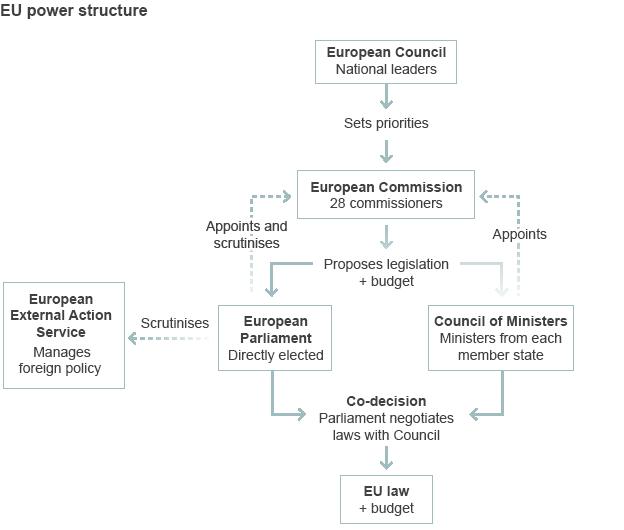
Objections
Mr Cameron has said he will demand an unprecedented vote if Mr Juncker's name is tabled, so that EU leaders are forced to justify their support for the veteran politician in public.
"I'm completely unapologetic about standing up for an important principle in Europe which is that the elected heads of government should make these choices," the British prime minister told the BBC on Thursday.
"I'm also unapologetic about the need for people who can carry forward badly needed reform in Europe," he added.
In the past such sensitive appointments have been decided through informal negotiations in the European Council.
Jean-Claude Juncker is confident he will become the next EC president if "common sense prevails"
With Hungary's Prime Minister Viktor Orban now Mr Cameron's only supporter, correspondents say Mr Juncker is likely to be overwhelmingly backed as the nomination, even if it does go to a vote.
Lucy Hockings explains the significance of the Menin Gate.
Damaging row
Chancellor Merkel said on Wednesday that it would be "no tragedy" if Mr Juncker won the Commission's top job with less than unanimous backing.
But Downing Street said that she later agreed with the British PM that a vote should take place if necessary.
As chair of the eurozone finance ministers, Mr Juncker worked closely with Chancellor Merkel on the emergency bailouts for Greece, Portugal and other debt-laden countries.
Ms Merkel is under strong pressure from her coalition partners - the centre-left Social Democrats (SPD) - and some other EU leaders to back him.
Centre-left leaders including French President Francois Hollande and Italian Prime Minister Matteo Renzi appear to be hoping that Mr Juncker will ease the EU's tough austerity drive. They want a shift away from cuts, and towards economic stimulus measures that could kick-start growth.

Next steps
27 June - European Council expected to nominate Mr Juncker
1-3 July - First post-election session of new European Parliament
14-17 July - European Parliament votes on nominee for Commission president - expected to back Mr Juncker
September - Parliament grills each nominee for 28-member Commission (one from each member state)
October - Parliament votes on new Commission team
November - New Commission should take office, as should new EU foreign policy chief and new European Council president.

- Published25 June 2014
- Published25 June 2014
